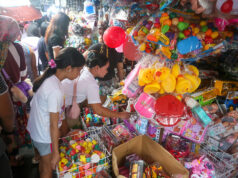THE trade department is encouraging the automotive industry to engage in more local production to avoid global supply chain disruptions.
“Find local sources for any eventuality, not to rely on a single source. It’s like part of business continuity planning. Really diversify sources, as well as diversify markets. Always try to have that balance and diversify the approach,” Trade Secretary Ramon M. Lopez told reporters on Monday.
Many factories in China have had their operations disrupted as the government there seeks to contain the spread of the Wuhan coronavirus, formally known as Covid-19.
Mr. Lopez said automotive companies should have contingency plans for factory shutdowns in China.
“They can do a backup strategy, sourcing from alternative sites as well. That can be in other parts of China or other parts of the world, including the Philippines.”
Mr. Lopez said he is hoping for a positive effect on the Philippine auto parts industry.
Toyota Motors Philippines Corporation (TMPC) first vice-president Rommel R. Gutierrez said the company is evaluating whether or not the factory shutdowns will have an impact on production.
“(There’s no impact) as of now,” he said.
Mr. Gutierrez said there have always been efforts to strengthen the role of domestic suppliers.
TMPC is participating in the Board of Investment’s CARS programs, under which it committed to produce 200,000 units of its VIOS compact sedan over six years until 2024.
Under the program, car makers are required to use domestically-produced body shells and large plastic parts.
TMPC’s supply chain in based mainly in Southeast Asia, including Indonesia and Malaysia.
Mr. Gutierrez said the company’s second- and third-tier suppliers use parts from China.
TMPC President Atsuhiro Okamoto, discussing the company’s outlook for 2020, noted that demand in the Philippines is strong.
“But still, there is some room for growth… improving the value chain and the mobility business. That is my challenge,” he said. — Jenina P. Ibañez



